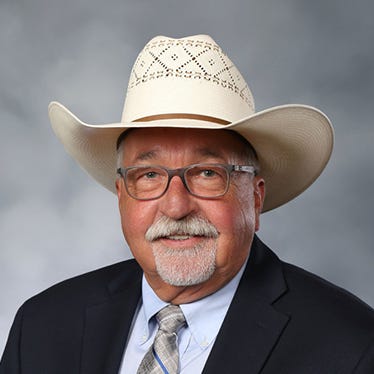June 17, 2022

As I was looking through the farm items for sale last week, I came across one that caught my eye. It was a certain brand of chainsaw that hasn’t been manufactured in several years, but it was advertised as vintage and priced at about three times what it had cost when it was new. I know this because I used to own one, and I’m also certain that I know the reason they are no longer in production: They were junk.
I was taken aback at what they were asking for a 30-year-old chainsaw that was never any good to begin with. I hollered at my wife to come to the computer and look at the ad. She explained that “vintage” is the latest buzzword, which entices people to purchase something with a hint of nostalgia.
All the rage
Vintage clothing is now the rage with the millennial generation. Evidently, there are lots of entrepreneurial people who go to second-hand shops, purchase a few outdated clothes, recondition them and then sell them at outlandishly high prices as vintage fashion. I don’t begrudge these people the opportunity to make money, but I wore enough hand-me-downs as a kid, and I’m not interested in paying triple prices to do it again.
Vintage vinyl is also very popular now among music aficionados who revel in the playing of old LP albums on their antique turntables — scratches and all. If these kinds of people are interested, I’ve still got a couple hundred vintage vinyl albums, a few dozen vintage eight-track tapes and another couple hundred vintage cassette tapes. Make me an offer.
I looked up the definition of “vintage” and discovered that the word was originally used to describe the year or place in which high-quality wine was produced. Use of the word has evolved over time to now describe anything of enduring interest, importance or quality. If I’m correct, that old chainsaw was anything but vintage, but if a word worth $100 helps someone market a $10 piece of equipment, I guess you can’t blame them.
Given my newfound appreciation for the word, I need to make an ad for that same advertising medium, informing the public that I have about a dozen vintage cows that I would sacrifice for $5,000 each. I also have a stack of vintage wooden corner posts that I could let go for — let’s say — $200 each. While they’re here taking advantage of those bargains, I could also surrender a huge pile of rusty, but vintage, barbed wire — price to be determined.
My birthday is next week and since I am going to reach the magical age of 70, I asked my buddies to take an informal survey and pick the word that best describes my milestone achievement, hoping they would use the word “vintage.”
One of my so-called friends chose “dilapidated,” while another offered up “decrepit.” Yet another, kinder friend threw out the word “antique,” while one more chose “weathered.” No one called me “vintage,” but one did say, “When you were born, the Dead Sea was only sick.”
So vintage.
Crownover farms in Missouri.
About the Author(s)
You May Also Like






